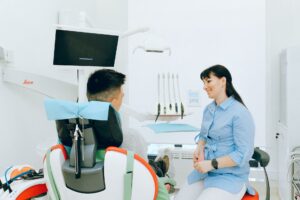In this episode we will look at a typical day in your practice that may increase your risk of a medico-legal claim and discuss ways that you can protect yourself going forward.
Medico-legal claims
Numerous useful articles have been written over the years explaining the top reasons for medico-legal claims against GPs. What struck me on reading these articles is that regardless of where in the world they were written, or when they were written, they are still relevant to us all. An example used for a medico-legal claim is a delay in diagnosis, referral or treatment. Or another example is a failure to monitor and follow-up patients adequately. I will provide some links to useful articles at the end of this episode on the main reasons for medico-legal claims against GPs and how being involved in a medico-legal claim can affect your style of consulting afterwards.
So what are some of the factors that can increase your risk of a medico-legal claim? We can generally split these factors into Me Factors and External Factors:
Me Factors
- Punctuality – The day is stressful enough and has enough time constraints without you adding more pressure to your day before it even begins
- Attire – Look sloppy and unprofessional and patients will think you are sloppy and unprofessional
- Knowledge – Learn as much as you can and bring that knowledge to your day. We have all heard it said that a GP is someone who knows very little about a lot and a consultant is someone who knows a lot about very little. Whilst this is a facetious remark, there is an element of truth in it. As a GP don’t be afraid to say that you will have to check up on something for your patient. Make sure you are completely up to date on the current treatment guidelines and read your journals
- Listening – This is a listening profession. Don’t be impatient and rush your consultation due to time constraints. Remember, your patient has rehearsed their dialogue and sometimes will not open up to you if they feel you are distracted or not listening.
- Attitude – Arrogant, dismissive, unkind, disinterested, ignorant and rude. If patients can use any of these to describe you, then you will have medico-legal issues going forward.
- Social factors – Don’t go out and overuse alcohol before a day’s work. It may affect your judgement and will certainly call your professionalism into doubt if a patient smells alcohol off your breath. Row at home with your partner, or late night with the kids? Leave the effects at home. You must still be able to perform professionally the next day as soon as you walk in the door.
Remember you are only as good as your last consultation, so treat every consultation with due respect and care.
External Factors
- Doorstepping – Coming out of a consultation for a second to do something or between busy consultations and you are asked by a staff member to sign this, read this, look at this, check this. This can lead to mistakes and increased risk medico-legally.
- Practice Partners – How often have we heard of a patient who attends three or four different GPs in a practice who all fail to diagnose. Don’t be complacent just because another GP in the practice has seen the patient previously. Mistakes happen and diagnoses can progress over a timeline. So treat your consultation with the patient as if it is their first practice consultation for this issue. This will protect the patient, yourself and your colleagues.
- Administration Staff – General Practice is a team effort. The first interaction that a patient has at reception can set the tone for the whole patient experience and if the reception staff are rude or short tempered you may find yourself guilty by association. So always be welcoming as the patient comes into your room and greet them professionally while making good eye contact.
- Secondary Care Colleagues – They sometimes don’t see your referrals in a timely fashion or let you know their findings after they have consulted in a timely fashion which can pull you into a medico-legal case by association. Always tell your patients that you have referred them, what type of referral it is and ask them to mark down the date of referral for their own reference. Any contact you have on behalf of the patient should be documented in their records for future reference.
- Extras – More patients to be fitted in affects the whole functioning of your day leading to decreased consultation times, decreased ability to check on patient admin and increased risk of missing a diagnosis. Make sure that the extras are spread out equally amongst the Practice GPs and beware of the partner who always has a lovely day because they take half an hour per consultation and you can hear them laughing at some patient anecdote as you see your list getting longer and longer.
- Patients – No matter how nice you are, sometimes the doctor-patient relationship does not work out. A patient may not respect your professionalism or they make unreasonable demands regarding medications or unjustified referral requests. If reasoning doesn’t work in these cases, discuss with a practice partner and discuss laying down ground rules on interactions going forward or in some cases refer them in future to another practice partner. These patients may expose you medico-legally but may have a different type of interaction with another practice partner.
Conclusion
General Practice is a rewarding career but I have heard first hand from colleagues who have had medico-legal cases taken against them just how devastating this can be not just professionally, but also on a personal level. So take care of yourselves personally and professionally and try to limit the risk factors for a medico-legal case against you.
Next week’s Episode will be on breaking bad news to patients and how to approach this during your career.
Useful links
https://www.racgp.org.au/download/Documents/AFP/2009/January/February/200901nash.pdf
About the Author
Dr Brendan Woods is a qualified GP and a member of the RCGP. He ran a successful General Practice for many years and was a GP Trainer for 15 years. He is the Managing Partner of a global medical recruitment company Woodston Personnel Ltd and Woodston Personnel UK. The company’s experienced Medical Partners, team of Recruitment Consultants and Personal Relationship Managers provide daily advice and direction to all their GP candidates and assist them in their career objectives.






